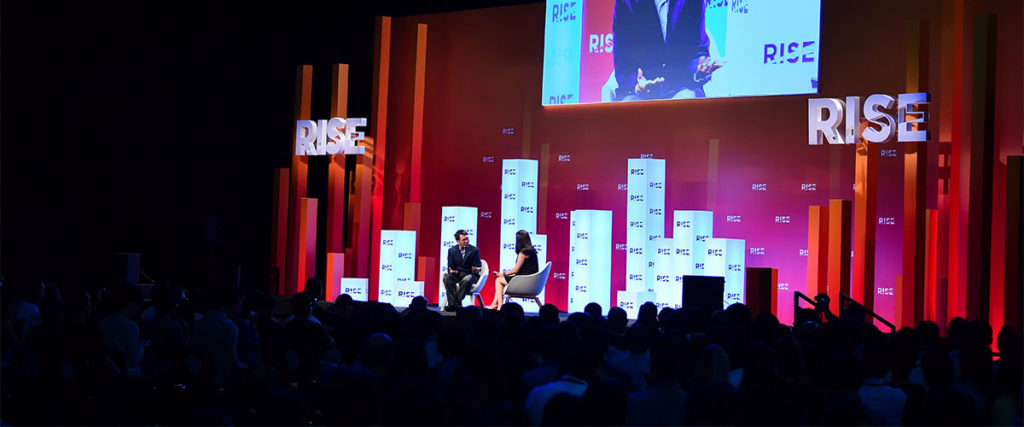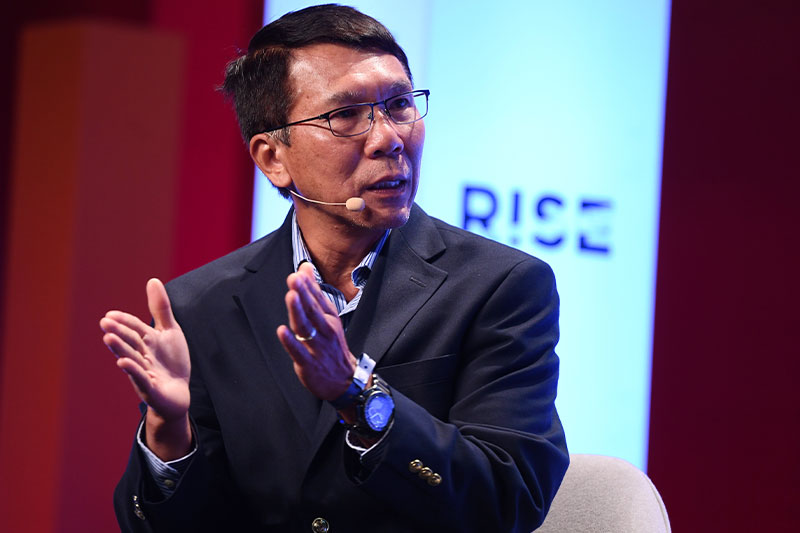In our first roundup of the most anticipated talks at RISE, Asia’s biggest tech conference, held in HK last week, we report on Uber CTO Thuan Pham’s talk on the future of one of the world’s most controversial firms.
Uber first began in 2009, the brainchild of a college dropout and a computer programmer, quickly garnering a reputation for its fast and dirty rise to fame. That road, however, has been far from smooth. From major personal data breaches to evasion of the law, sexual harassment cases to the death of a pedestrian due to an Uber self-driving car, not to mention the infamous ousting of CEO Travis Kalanick in 2017, the company has been plagued with countless scandals.
A decade later, the ride-hailing behemoth, valued at over USD 70 billion, faces a new set of challenges, not least its less-than-stellar IPO in May 2019, which raised a disappointing USD 8.1 billion, and its USD 1 billion operating loss in the first quarter of 2019 alone. All of which made a talk by Uber’s CTO Thuan Pham at RISE 2019, Asia’s largest tech conference held last week in Hong Kong, a much-anticipated event. Realistic that profitability might still be “several years away” given the industry’s fierce competition, he told his audience that the company stands firm in its aims to “change the landscape of transportation” in the long-term by building its own platform into something comparable to Amazon Web Services (AWS) and diversifying into multiple vertical markets including Uber Eats, freight, and micro-mobility. Together with Uber Chief Business Officer Brooks Entwistle, who shed light on the company’s plans to invest in virtual restaurants and self-driving cars later in the conference, the duo gave insider insights into the workings and thinking of one of the world’s most controversial companies.
Photo credit: Stephen McCarthy/RISE via Sportsfile
“Our goal is to provide and revolutionise the democratic transportation and logistics of people,” proclaimed Thuan to a full house at the Centre Stage. “Our business has already evolved into a platform with core capabilities to actually enable us to deliver not only one vertical business but multiple.” Only this month, Uber has integrated Uber Eats, their online food delivery system, into their main app, a decision in line with Uber’s Chief Business Officer Brooks Entwistle’s explanation, also at RISE, that “our cross-fertilisation across business units is a strategy and up in priority.” Alongside food delivery, Uber has also recently hosted its first-ever Future of Food Summit in Hong Kong, a forward-thinking two-day conference bringing together experts, businesses and consumers to discuss the newest developments in the culinary world, upcoming trends (including virtual kitchens and cloud kitchens,) and the changes we need to make to build a sustainable food production ecosystem. Brooks indicates Uber will be expanding the Summit beyond APAC to “happen around the world in various megaregions.” In addition to Uber Eats, the company also plans to expand into freight, buses, and micro-mobility (e-bikes and scooters) – Uber’s e-bike pilot programme “Jump” launched in London just two months ago – and is developing self-driving cars. As Brooks told his audience at RISE, “We’re focused primarily on safety first. Anything we do from a technology or development standpoint has [self-driving cars] at the core of it. Going forward, it’ll be an important piece of the [wider] platform, which has scooters, electric bikes, taxis and ride-hailing.”
You might also like 7 Tips For Business Success in Asia
To support their rapid expansion, Thuan declared that Uber has developed its platform far beyond its initial ride-sharing-specific capabilities to encompass a “marketplace, platforms that actually match demand and supply,” as well as “mapping logistics marketplace routing” and “payment infrastructure,” which he hopes will allow them to deploy new lines of business at an unprecedented rate. Paradoxically, Uber also has partnerships with its biggest competitors including DiDi and Grab, an arrangement which Thuan describes as “a very healthy thing.” Citing competition as an essential part of driving the company to innovate, the CTO states, “competition makes every company stronger. If you don’t have competition, you atrophy. You become complacent and you don’t get the customer locked in.” He adds, “If [our competitors] are doing something better in terms of certain features and capability, we strive harder to close the gap and then surpass that. […] In the end, the technology will be better. The customer will benefit because of the competition.” In the longer term, Thuan believes that after an initial period of fierce competition, the market will settle into a calmer, profitable equilibrium in which “the best few companies will ultimately get to stay around.”
Speaking about the company’s adjustments post-Travis, he remarks, “In the early years, the extraordinary strength of Uber was its ability to take very bold bets and move very fast. It executed like no other company I’ve ever experienced.” However, following the company’s countless scandals and tarnished reputation, Uber is making a significant effort to rebuild consumer trust and rebrand themselves. Thuan stresses that the company is currently focused on “being a responsible, good actor as a public company in the world stage.” Going forward, he states that “we’re working very, very hard to marry the best of both these phases into the third stage of Uber as we go forward. I think that’s the ideal state we want to see.” With this approach in mind – and a company-wide culture shift on the horizon seeking to combine the company’s early risk-taking boldness alongside a strong moral bottom line – Thuan hopes to see the day where third-party vendors will be building their own business lines upon an established Uber multi-functional platform.
Related Articles
Shenzhen: the next Silicon Valley?






